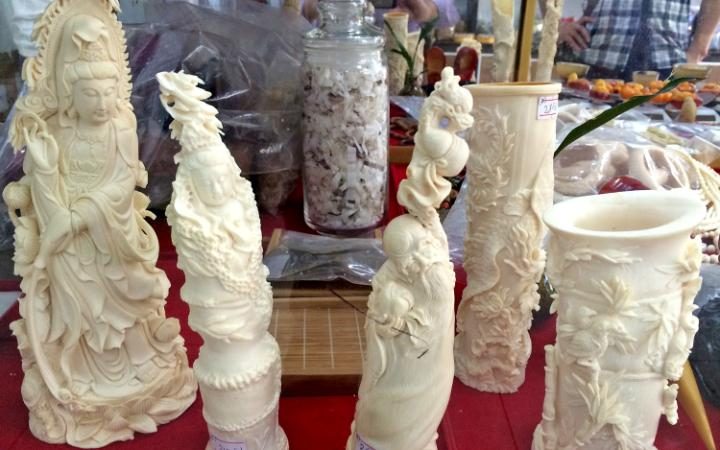31st October 2016
Laos: Pacifying the “Wild East” for wildlife trafficking

As the Chinese government in recent years clamped down on illicit wildlife trade (IWT), smugglers and buyers have shifted much of their business to China’s small southern neighbour – Lao PDR. The Lao government is struggling to develop effective measures against the growing trade and the involved international syndicates. The United Kingdom together with other partners is therefore supporting the Lao government to develop its capacity, strategy and actual activities to fight IWT more effectively.
Two IWT issues are in particular pressing and characteristic for the current struggles in Laos: International ivory trade and domestic tiger farms.
The illegal trade of ivory and rhino horn products is most prominent in the Lao capital Vientiane, the world heritage city Luang Prabang and in the Bokeo Special Economic Zone in the so-called “Golden Triangle” at the Lao-Chinese-Burmese border. In Laos, Rhino horn is selling at higher prices than gold, with carved items selling at more than $16k per 100 grams. Carved ivory sells at around $6 per gram. These products mostly originate in Africa and are smuggled into Laos to be sold to Chinese tourists. To ease the hassle of smuggling these products back home across the border, some stores have even introduced delivery services to Vietnam and China.
But Laos is not only an IWT transit hub. Currently there are at least three large commercial tiger farms in Laos, all run by bigger trading companies with other wildlife trading links such as reptiles, primates and ivory. The most recent official government inspections showed as much as 400 tigers per farm. These tigers are usually killed when 2 years old, and their bones and bone wine (but also all other parts of their body) are shipped to China and Vietnam. A single tiger (or better the derived commercial products) is estimated to trade at around $30,000. Tigers were listed in Appendix I of CITES in 1975, which prevents their commercial international trade.
Engaging the government in Laos
The syndicates exploit vague laws, weak law enforcement and opportunities for corruption to trade illegal wildlife products via Laos. The United Kingdom as coordinated by the British Embassy in Vientiane is actively encouraging the Lao Government to address these challenges and take a stronger position against IWT.
Together with the US and the EU, we have prompted the formation of a Like Minded Group on IWT, which now includes the World Bank, Australia and importantly also Thailand and Vietnam. Under the IWT Challenge Fund we are working with the Wildlife Conservation Society (WCS) to generate political support, leverage greater accountability of government and provide actionable intelligence to law enforcement agencies to put Asia’s most prolific wildlife.
Most recently the Embassy facilitated an official CITES visit to Laos to investigate its compliance with the CITES convention. These lobbying and support efforts are beginning to show first successes. In 2016 we have witnessed a concerted government effort to tackle both illegal logging and illicit wildlife trade throughout the country. Activities were also directed at putting trafficking companies out of business and close some of the tiger farms. Most promising, the open and constructive dialogue during the CITES visit shows the commitment of the new Lao leadership to further cooperation on IWT issues.
Finally, the extensive lobbying of the British Government and our partners resulted in the public commitment by Lao officials at the CITES CoP17 conference in Johannesburg conference in September to closing all facilities that keep and breed tigers for commercial purposes. The British Embassy supports this move and stands ready to support its implementation.

1 comment on “Laos: Pacifying the “Wild East” for wildlife trafficking”
Comments are closed.